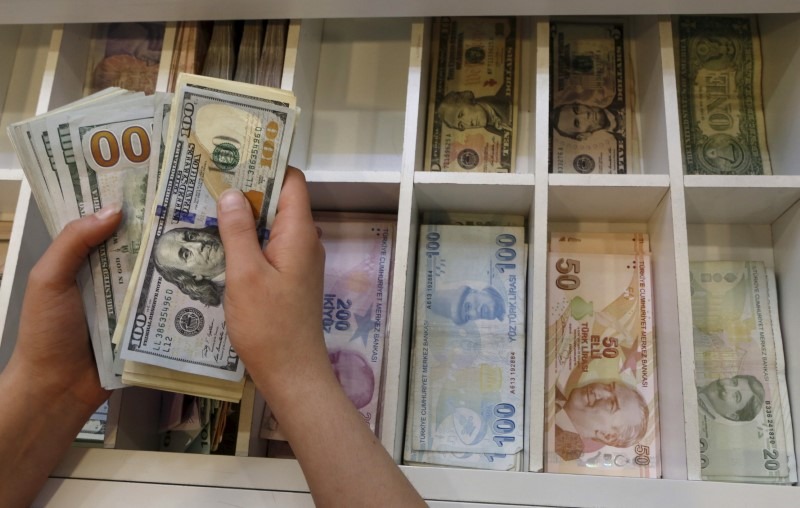The Central Bank of the Republic of Turkey’s (CBRT) net positioning saw a sharp $11.2 billion drop on Wednesday, with an estimated total decrease of around $21-23 billion over the last three days, according to Bank of America.
This outflow was predominantly attributed to a reduction in foreign positioning, particularly in the foreign exchange (FX) market, with local FX demand being minimal and primarily corporate-driven.
BofA analysts anticipate that political uncertainty will likely diminish moving forward. Although court cases and judicial processes are expected to continue, the market now has a clearer understanding of the situation.
According to feedback from locals during BofA’s recent field trip, there is an expectation that uncertainty will decrease in the coming weeks. The economic administration is reportedly in control and policymakers have expressed their commitment to restoring stability and continuing with their disinflation program. Despite recent events, political support for this program remains strong.
In light of these developments, BofA has revised its inflation forecast for the region to 28.1%, up from the previous 25.7%. This revision is front-loaded, with most of the inflationary pass-through expected to occur in April, and to a lesser extent in March.
Additionally, BofA has altered its monetary policy outlook, changing its prediction from a 200 basis point cut in April to a pause. The year-end policy rate forecast has also been adjusted to 32.5% from 30.5%. The CBRT has increased its upper interest rate band to 46% while maintaining its policy rate at 42.5% during an emergency meeting.
BofA believes that the upper band will likely stay elevated to provide the central bank with the flexibility to manage liquidity and potentially increase overnight rates as necessary. The central bank is also prepared to offer higher real interest rates to address any further risks of local dollarization.
The report also touches on the potential impact on demand, noting that the volatility acts as a negative shock to the real sector. With high FX borrowing previously, the rise in exchange rates is expected to tighten financial conditions.
Borrowing rates in Turkish lira (TRY) are likely to remain high, and consumer sentiment could suffer, at least in the short term. As a result, BofA maintains a growth forecast of 2.4%, with less concern for a revival in demand for the first quarter and an expectation that the output gap will remain non-inflationary.










